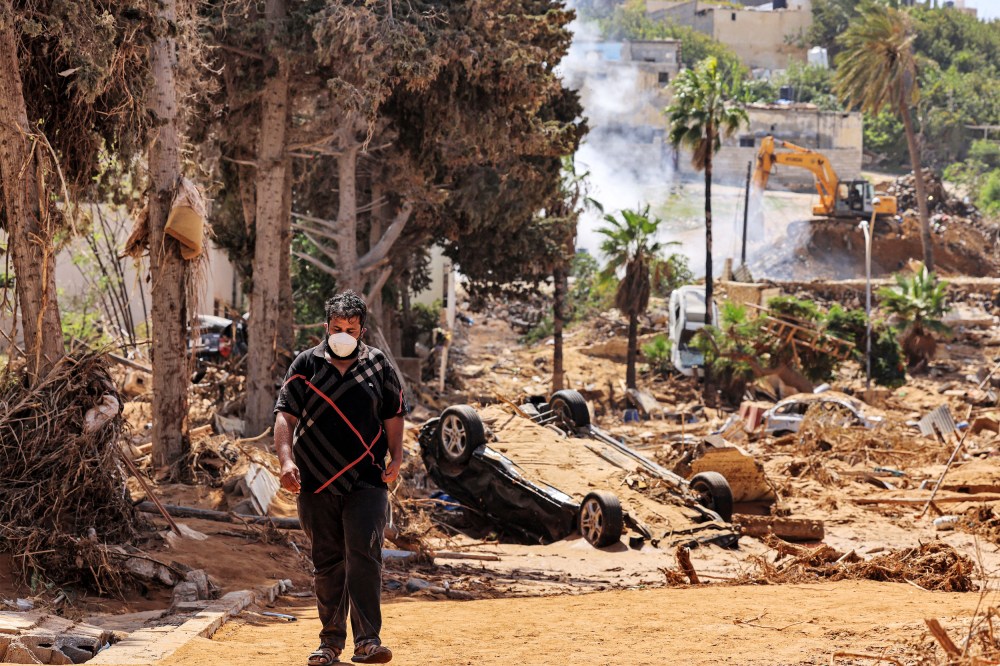Four years ago, the United Nations published a controversial report predicting that, by 2030, the world could be on the brink of a “climate apartheid.” We’d know we’d arrived at such a scenario, said Philip Alston, then-U.N. special rapporteur on extreme poverty and human rights, when “the wealthy pay to escape overheating, hunger and conflict while the rest of the world is left to suffer.”
Dec. 5 will mark the 10th anniversary of my grandfather Nelson Mandela’s passing, but the fight against apartheid that Madiba led is far from over.
Seven years ahead of schedule and at the start of the United Nations’ COP28 climate summit, which is being hosted by the United Arab Emirates in Dubai, I believe that the climate apartheid the U.N. predicted is already here. Half the global population lives on less than $6.85 a day. That half has the smallest carbon footprint on our planet but is the most climate-vulnerable.
Dec. 5 will mark the 10th anniversary of my grandfather Nelson Mandela’s passing, but when the climate status quo is being defended with the same type of racist assumptions and attitudes my grandfather struggled against, it becomes clear that the fight against apartheid that Madiba led is far from over.
This suffering is the direct consequence of an unequal global political and economic structure, whose laws and regulations systematically discriminate against this other half, the vast majority of whom are people of color in the Global South.
My grandfather fought in South Africa to dismantle an entrenched system based on racism and subjugation that destroyed the lives of millions of Black South Africans and humiliated them daily. Despite his victory in my home country, apartheid has been exported into the heart of the entire global system.
In apartheid South Africa, power, wealth and opportunity exclusively belonged to white South Africans. Similarly, the most egregious polluters in the Global North reap the benefits, while those in the Global South are forced to shoulder the most destructive consequences of rising temperatures.
As world leaders convene for COP28, skepticism about it being held in Dubai is understandable. Critical scrutiny of the UAE hosting the U.N. climate summit is welcome. But it must not come at the expense of balance. I fear we’re becoming distracted by pointing fingers of blame, rather than recognizing our shared responsibility.

Media reports have claimed the COP28 presidency used ministerial climate talks to broker deals to expand global fossil fuel production, based on background notes prepared for the meetings. These raise key concerns about transparency and propriety. But the reports fail to identify a single new fossil fuel project, or indeed any concrete plans to expand existing ones. Even the mention of potential LNG projects has context. Gas is recognized by the International Energy Agency as a bridge fuel to disrupt oil and coal, for instance, with far lower emissions.
While many are legitimately concerned that the UAE is an oil producer, the truth is that so are 97 other countries in the world. That includes the United States, which, between 2018 and 2022, was the world’s top producer of crude oil. Nearly half of the 98 oil-producing countries in the world are in developing nations, and 16 are in Africa.
Critical scrutiny of the UAE hosting the UN climate summit is welcome. But it must not come at the expense of balance.
Many of my fellow climate activists concerned about the UAE hosting this climate conference have forgotten that the biggest fossil fuel expansion plans are being led by the United States, Canada, Russia, Iran, China and Brazil. The UAE is seventh on that list. European banks have invested $1.3 trillion into fossil fuels since 2015 (including $130.5 billion in 2022 alone), despite the EU saying it wants a fossil fuel phase-out. Banks in the U.S., Canada and Japan account for the bulk of global fossil fuel financing.












